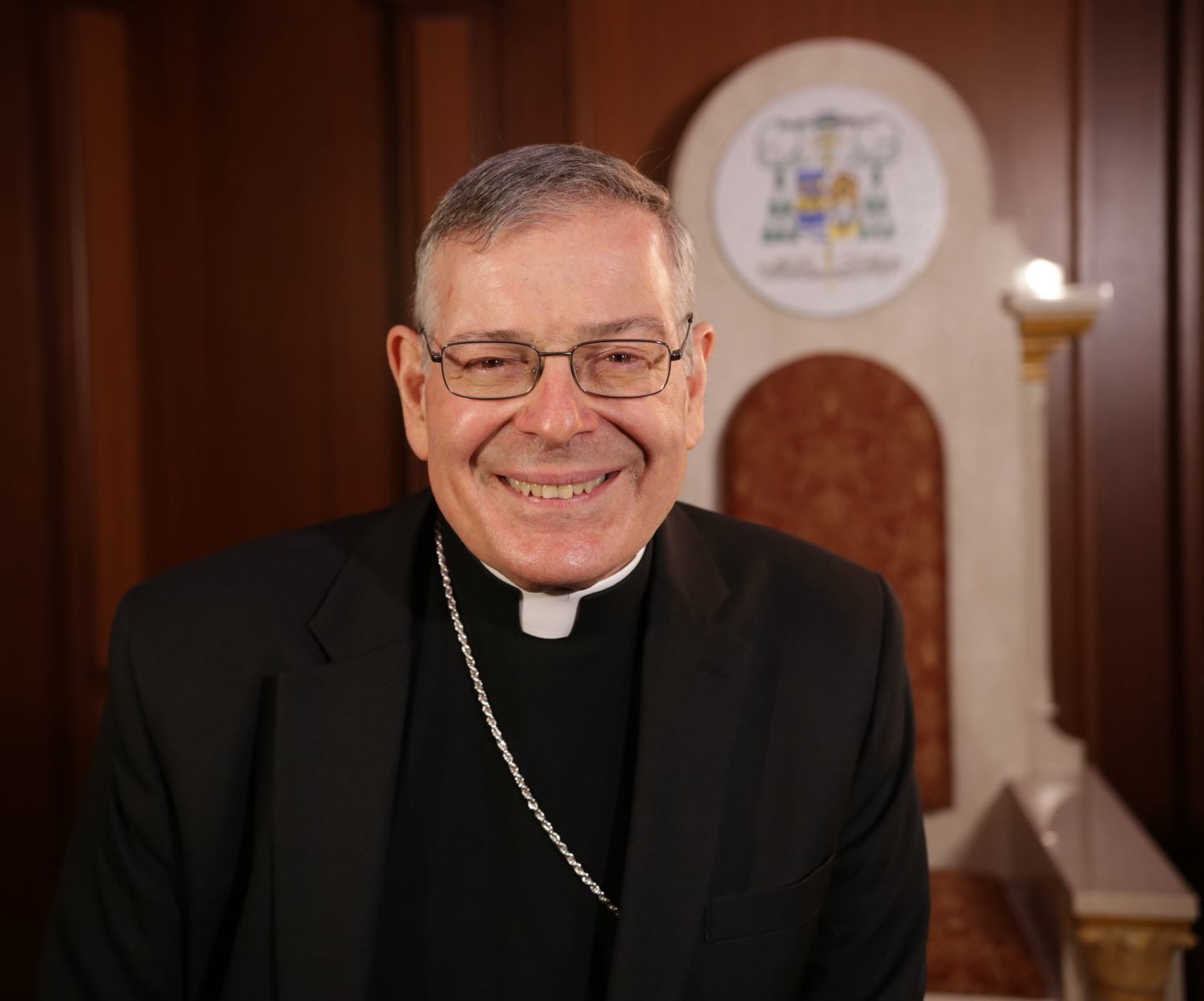
Presently, the first readings for weekday Mass are a succession of ones from the beginning of the Book of Genesis. Here we are presented with the account of God’s creation of the world, culminating in the creation of the human person, as well as of the entrance of sin into the world. The Book of Genesis, the beginning book of the Bible, opens with the words “in the beginning.” It is good to return often to that beginning to reflect upon some very basic truths of our faith.
In the beginning, we see that God created the world. It did not come into existence by an accident but from the very hand of God Himself. The account of creation in the Book of Genesis makes very clear that God created the world out of nothing, but with a purpose and order. We read of the creation of light, water and all of those elements which give and sustain life from God. All of these follow a natural rhythm as we experience from the movement of the day into night and from one season into another. Genesis then tells us that God created both plant and animal life, which are sustained by these elements and natural rhythm.
The Book of Genesis helps us to appreciate better that the world is indeed God’s. His purpose and laws are at the basis of all others. There is a natural law which comes from God Himself. All other laws must be in conformity to His. Genesis also helps us to appreciate better the beauty of creation, which so many times we can take for granted. Each day, God reveals Himself to us in nature as the earth moves around the sun reflecting the very grandeur of God. Too many daily preoccupations and concerns can interfere with the joy that comes from appreciating this basic beauty.
When the creation of the world is complete, the Book of Genesis makes clear that God then created the pinnacle of His creation which is the human person. Everything else which God has created is given to and meant to sustain the human person. It is here that Genesis reveals to us one of the most basic truths, which is that the human person is created in the very image and likeness of God. Unlike the rest of creation, to be human means to share in the very depth of the life of God Himself and to reflect that life in the fullest way. This means that every person is given a dignity which comes from God and can never be taken away.
When God created the human person in His image and likeness, another basic truth of life is revealed to us. The Book of Genesis tells us that God created the person as male and female: “God created man in his image; in the divine image he created him; male and female he created them” (Gen 1:27). It is here that the nature of marriage and family life is understood as a participation in the life of God Himself. For as Genesis also tells us, “that is why a man leaves his father and mother and clings to his wife, and the two of them shall become one body” (Gen 2:24). God lives for all eternity as a communion of love in the persons of the Father, Son and Holy Spirit. Marriage is a reflection of that communion through which life comes into existence. Every single life, from the moment of conception, has an inherent dignity which comes from God. In the family that dignity and purpose are brought to fruition as a participation in God’s life. Marriage and family life are not a creation of society but a reflection of God’s very life. How much this basic truth needs to be better understood and appreciated in our society today which no longer understands marriage, family and the gift of life as part of God’s plan and not our own.
The beginning of the Book of Genesis also makes clear another basic truth. God created us to be happy. He placed the human person in the Garden of Eden in a natural state of happiness. God wants us to be happy and to know the joy that is His. It is only by living as He created us that we find this happiness. Living life in a manner that is forgetful of God and the natural order and beauty of His creation is what leads to unhappiness and frustration.
In this context, the Book of Genesis places before us the reality of evil. The first man and woman decided not to live in the manner for which God had created them, but attempted to find happiness in another way and disobeyed God’s natural law. Once they did this, they put themselves in an unhappy state and caused a disruption in the order and plan of God’s creation. Original sin entered the world, and with original sin came an accompanying disorder.
The Book of Genesis also makes clear another reality of the existence of the evil one — Satan. Man and woman were tempted to go against God’s plan by Satan, who fooled them by making evil look good. They chose evil, and its accompanying unhappiness, because they thought it would make them happy. The devil works in subtle ways, and we must always be cautious in this regard. God has given us, as He gave the original man and woman, freedom. Freedom is not the ability to do whatever we want, but the ability to choose the good. It is Satan who works against this and is most effective when his existence is denied. That is why the first baptismal promise, as well as the one made by a young person to be confirmed, is “Do you reject Satan, and all his works and all his empty promises?”
As we reflect upon these basic truths given to us in the very beginning in the Book of Genesis, it is also essential for us to reflect upon the basic truths given to us in the person of Jesus Christ, who took our human nature to Himself in order that He might free us from ourselves. The Gospel of St. John begins with the words reflecting the opening Book of Genesis: “in the beginning.” It proclaims, “In the beginning was the Word, and the Word was with God, and the Word was God” (Jn 1:1). The Son of God was in the beginning at creation and became one of us to bring us back to the beginning which God had planned for us. Not even sin can hinder God’s plan and prevent us from experiencing His love in the original way for which He had created us. God had a plan for us from the very beginning, and it is Christ who restores us to that plan.
As we quickly approach the beginning of Lent, as I mentioned in this column last week, the season gives us the opportunity to reflect upon what Christ has accomplished by becoming one of us and suffering, dying and rising for us. The Book of Genesis reminds us of fundamental truths. It is Christ who sheds light upon those truths and brings us back to them in order that we might have the joy for which God created us. May we use the coming season of Lent to help us grow in the basics of our faith.
Most Reverend Gerald M. Barbarito
February 10, 2023

